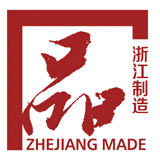In 2023, the company's main environmental emissions include waste gas, wastewater, solid waste, noise and greenhouse gases, the details are as follows:
1. Air pollutants
The waste gas generated by the enterprise in the production process mainly includes: annealing furnace exhaust gas and acid fog tower exhaust gas.
According to the inspection and testing report, the concentrations of particulate matter, sulfur dioxide and nitrogen oxides at the outlet of the exhaust gas of the annealing furnace and the concentrations of nitrogen oxides and fluoride at the outlet of the exhaust gas treatment facility of the acid mist tower meet the "Air Pollutant Emission Standards for the Steel Rolling Industry"(GB28665-2012) and the corresponding standard limits in the amendment order.
2. Water pollutants
The wastewater generated by the enterprise is mainly circulating cooling water, waste gas treatment water and pickling wastewater. The circulating cooling water of the enterprise is recycled, not discharged, and replenished regularly; The waste gas treatment water is recycled and discharged to the sewage treatment station on a regular basis; The pickling wastewater is collected and discharged to the sewage treatment station, and then reused in the pickling process and cooling process after the sewage treatment station reaches the treatment standard.
According to the test report, the enterprise handles the export of the facilitypH, suspended solids, chemical oxygen demand, petroleum, fluoride, ammonia nitrogen, total nitrogen, and total iron concentrations meet the requirements of the existing enterprise water pollutant discharge concentration standard limit in Table 1 of the "Iron and Steel Industry Water Pollutant Discharge Standard" (GB 13456-2012); The concentrations of total nickel, total chromium and hexavalent chromium meet the emission limit requirements in the "Discharge Standard for Pollutants in Electroplating Water" (DB33/2260-2020).
3. Solid waste
The main solid waste of the factory includes waste scraps and metal scraps, pickling waste residue, waste machinery oil, waste lubricating oil, grinding ash, dust removal ash, physical and chemical sludge and biochemical sludge.
Among them, general industrial solid waste includes waste scraps and metal scraps, dust removal ash, grinding ash and biochemical sludge, which are sold to recycling companies for comprehensive utilization or landfill.
Hazardous wastes include pickling waste residue, waste machinery oil, waste lubricating oil and physicochemical sludge, which are entrusted to qualified units for unified and safe disposal.
4. Noise
The noise of enterprises mainly comes from the noise generated during the operation of production equipment such as cutting machines, polishing machines, cold drawing machines, cold rolling mills, and straightening machines.
According to the inspection and testing report, the daytime noise test results on the east side of the plant boundary, the west side of the plant boundary and the north side of the plant boundary meet the "Environmental Noise Emission Standards for Industrial Enterprises"(GB 12348-2008) Class 3 standard limit requirements.
5. Greenhouse gases
According to the Greenhouse Gas Emissions Verification Report,Corporate CO2 emissions in 2023 are:8331.89 tons.










